Premier Palaszczuk is a premiere kind of party leader
Derided by her own MPs as the ‘part-time premier’, Annastacia Palaszczuk’s grip on power in Queensland has entered a dangerous twilight zone.
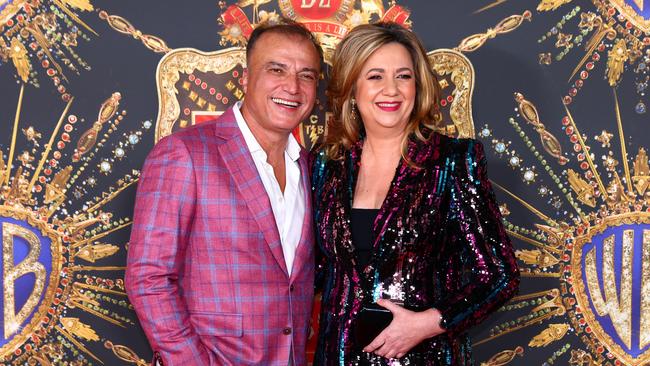
Annastacia Palaszczuk’s premiership in Queensland has entered a dangerous twilight zone. Her grip on the levers of power, never strong, has slipped to the point that the seven-year-old Labor government is drifting. The coming weeks will dictate whether the situation is retrievable.
Disgruntled MPs and high-level public servants whisper she is the part-time Premier – more interested in treading the red carpet than knuckling down to the grind of governing, they privately complain.
State cabinet meetings are perfunctory. Ministers who are supposed to check their factional allegiances at the door dutifully toe the line dictated by the backroom players, strangling debate. Positions are typically settled well in advance.
The most powerful figure in the government is said to be a union leader who is virtually unknown outside the labour movement, but whose influence is so pervasive Palaszczuk is said to rarely make a decision without his blessing.
“What does GB think?” she will ask, referring to left-wing powerbroker Gary Bullock, the gregarious boss of the United Workers Union who revels in his reputation as kingmaker of the Queensland ALP.
The party of innovative past premiers Wayne Goss and Peter Beattie is a policy-free zone, weighed down in office under Palaszczuk by crippling borrowings and a myopic vision for what used to be the federation’s most dynamic economic growth centre.
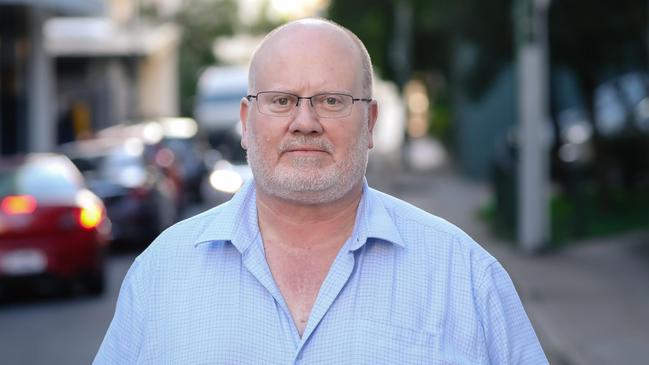
The picture painted by some of those commanding privileged positions in the “tower of power” at One William St is of a government crying out for direction and drive, but a Premier too distracted or uninterested to provide it.
“The problems start at the top,” says one senior public servant who has regular dealings with Palaszczuk and her office on level 40. Another complains: “The only thing she wants to talk about is the Olympics.”
‘Checked out’
Concern she has “checked out”, to quote a senior Labor Party figure, runs deep in the Queensland ALP and has penetrated to the federal caucus. At a time when her government is confronting crises on multiple fronts – ranging from the fitness of Star Entertainment to hold casino licences in Queensland and the brazen practices of Labor-aligned lobbyists exposed by this newspaper, to hospital failures and probity concerns raised by the outgoing Integrity Commissioner and a former State Archivist – it might be taken as a given that her attention was fixed on the job.
But that’s not the message Palaszczuk, 52, sends when she steps out on the arm of her partner of less than a year, Brisbane laparoscopic surgeon Reza Adib, at one glittering society event after another.
On Sunday night, barely 36 hours before her Treasurer hands down a budget groaning with forecast state debt nearing $130bn, she will rub shoulders with the A-listers of Australian television and showbiz at the TV Week Logie awards on the Gold Coast.
Earlier this month, the couple were in dashing form posing with Baz Luhrmann and Tom Hanks at the premiere of their Hollywood blockbuster, Elvis, also on the glitter strip. Their recent dance card runs to the Gambaro family’s black tie Moet et Chandon-sponsored ball in Brisbane and kicking up the heels last Saturday at the Stradbroke Handicap race day at Eagle Farm.
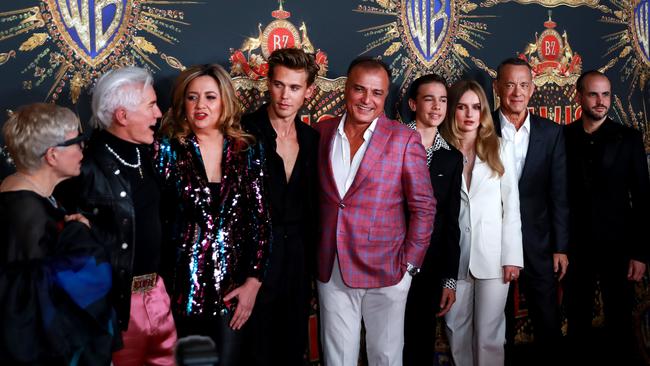
Palaszczuk is such a frequent visitor to the Sunshine Coast holiday spot of Noosa that boutique staff on fashionable Hastings St joke about being cleaned out by her ferocious clothes shopping.
“No one begrudges Annastacia a personal life,” says a state Labor MP who professes to like and respect her. “But the optics are all wrong. People are worried about interest rates and what things cost at the shop. Every time they turn on the news there’s another story about some atrocity in the health system. And there she is: out and about again with the doctor. It’s not a good look.”
Premier loves a premiere
Says another, one of more than a dozen parliamentarians, serving and past Labor advisers, senior state bureaucrats and union leaders who spoke to Inquirer on condition they wouldn’t be named: “Annastacia has always enjoyed the red carpet but it’s getting out of hand. That business a few weeks ago when she had her boyfriend at an Olympics meeting in Sydney was crazy … people were gobsmacked that anyone could do something that dumb.”
The incident concerned, for which Palaszczuk has apologised, was initially passed off by her office as an “informal catch-up” with sporting world heavyweights including International Olympic Committee president Thomas Bach, departing Australian Olympic Committee boss John Coates and 2032 Brisbane Games organising committee head Andrew Liveris at a Sydney hotel on May 1. The meeting was organised by the AOC while Bach was in the country.
Adib was seated at the conference table and participated in the official photo call, though Palaszczuk stressed he took no part in the discussions. While conceding her judgment had been awry, she made it abundantly clear he was part of her life: “It is a big role to run this state and my partner will be coming with me to different functions,” she insisted.
What most exercised her internal critics was the presence of chief of staff Jim Murphy, in the chair next to Adib. “I can’t understand how any half-competent office could allow that to happen,” says one former Labor adviser, still plugged into the tower of power.
Who holds the power?
This goes to the perceived dysfunction atop the government, a result in part of Palaszczuk’s light-touch style. In the early years, keeping above the fray not only suited her temperamentally but was imperative when the Left controlled the numbers in cabinet, caucus and the key ALP councils, and had a factional leader in then deputy premier Jackie Trad who was utterly unafraid to use them, even if it meant crossing the boss.
Palaszczuk is backed by the Queensland Right, which traditionally held the whip hand in the state ALP. Her ascent as parliamentary leader in 2012 after the party crashed out of office under Anna Bligh, all but wiped out in one of the heaviest electoral defeats on record for the LNP by Campbell Newman, and in due course as Premier coincided with a changing of the guard and the coming of Bullock.
His masterstroke was to have the Left contest seats thought unwinnable for Labor at the 2015 state election, where Labor stunningly fell across the line. The broad Left musters 23 MPs in the 52-strong state caucus, most of whom are pledged to the UWU, a marriage of the National Union of Workers and United Voice, the rebadged Missos, which represented low-paid workers such as hospitality staff and cleaners.
“To get decisions made you would see GB first … the Premier would want to know what he knew on anything,” explains one senior government source. Ministers with an axe to grind or looking to get a pet submission through cabinet go straight to Bullock to sort it, other insiders say.
Palaszczuk is perceived to owe him. “She believes she is there because of him,” says someone who worked closely with the Premier. “Bullock … backed her against being rolled in opposition and then in power. She never felt backed by her own faction like that.”
A serving cabinet minister admits: “I couldn’t have achieved half of what I have without Gary.”
And then there’s Trad
Then there’s Trad, a divisive figure in the government until she was forced to quit as Palaszczuk’s 2IC and treasurer in 2020 over integrity issues, a few months out from the state election, where she lost her seat of South Brisbane to the Greens. For all her stumbles, the fiercely able Trad got things done, which is more than can be said for most of her former ministerial colleagues. Palaszczuk gave her head, all too aware that to take her on would have risked blowing up the government.
Trad was also the only viable Labor leadership alternative to the Premier. Now she is gone – notwithstanding the taxpayer-funded legal action she has launched to suppress a Crime and Corruption Commission report into allegations she interfered in what was supposed to be an independent process to appoint then Treasury Department head Frankie Carroll, yet another headache for the government – Palaszczuk is no longer looking over her shoulder and, by some accounts, is not nearly as disciplined.
Through her office, Palaszczuk declined to be interviewed. “The only people I have heard saying the sorts of things you are is the opposition,” a spokesman said.
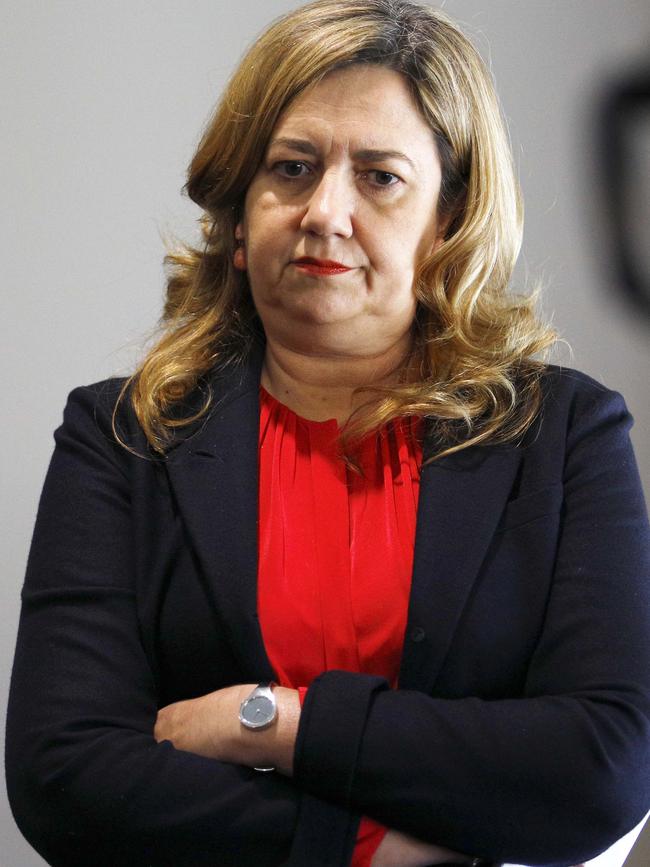
As in nature, politics abhors a vacuum. And in stepped former ALP state secretary turned lobbyist Evan Moorhead, a longtime Bullock factional ally, whose fingers are in all kinds of juicy pies including Star Entertainment’s bid to preserve its casino monopoly on the Gold Coast, the multimillion-dollar health services contract for the state’s go-it-alone quarantine centre at Wellcamp near Toowoomba, and a bulging portfolio of corporates doing business with the government, the envy of rival lobbying firms.
Prior to hanging out his shingle in Anacta Strategies with former ALP operative David Nelson, the ex-husband of state Attorney-General Shannon Fentiman, Moorhead had overseen Palaszczuk’s re-election in 2017 and joined her staff full-time as director of strategy. Chief fixer might have been a more apt job description. But revelations by this paper that he was brought back to run the 2020 campaign out of the Premier’s office alongside another Labor-linked lobbyist, Cameron Milner, added to the clamour around the so-called “integrity issues” bedevilling Palaszczuk.
The extraordinary and very lucrative access obtained by Moorhead and other connected lobbyists is front and centre of a review into culture and accountability in the government sector by public administration expert Peter Coaldrake, a former vice-chancellor of the Queensland University of Technology. His final report is due to be delivered within days of the 2022-23 state budget next Tuesday.
But he flagged his thinking in interim findings in April concerning a “fraying” of a “culture dedicated to service and accountability”. Coaldrake wrote: “There is a view, repeatedly shared, that public service advice is too often shaped to suit what are assumed to be the preconditions of the people receiving it, that the price for frank and fearless advice can be too high and the rewards too low, and that there is reluctance to depart from what is perceived to be the official line.”
On lobbyists, he warned: “Unfortunately, there is declining confidence that governments across the board are making the best decisions rather than decisions influenced by those with the most effective voice. In Queensland recently, this has been accentuated by the dual role of some lobbyists – acting for clients to influence government, then acting for political parties to help them win elections.”
Palaszczuk is also bracing for 1980s corruption buster Tony Fitzgerald to report in August on the mess at the CCC that led to the resignation in January of its chairman, Alan MacSporran. This came just days after Integrity Commissioner Nikola Stepanov said she was quitting over claims senior public servants had gone behind her back to order the seizure and wiping of a laptop containing evidence from her office, and that she was bullied by Public Service Commission CEO Rob Setter, her senior in the pecking order. Setter denies this.
If that’s not enough, there’s the investigation announced on Monday by Palaszczuk into Star Entertainment’s fitness to keep its casino licences on the Gold Coast and for the new $3.6bn Queen’s Wharf gaming house development in Brisbane; a royal commission-style inquiry set up on June 6 into bungled DNA testing by the state-run forensic laboratory exposed by The Australian’s Hedley Thomas, and; a further commission of inquiry into the Queensland Police Service’s handling of domestic violence cases arising from the murders of Hannah Clarke and their three children by her estranged husband.
Taken together, these represent the greatest challenge Palaszczuk has confronted in her time in office. No wonder there’s growing uncertainty within Labor’s ranks whether she will run for a fourth term in 2024. That life she has found outside politics must be looking better and better.


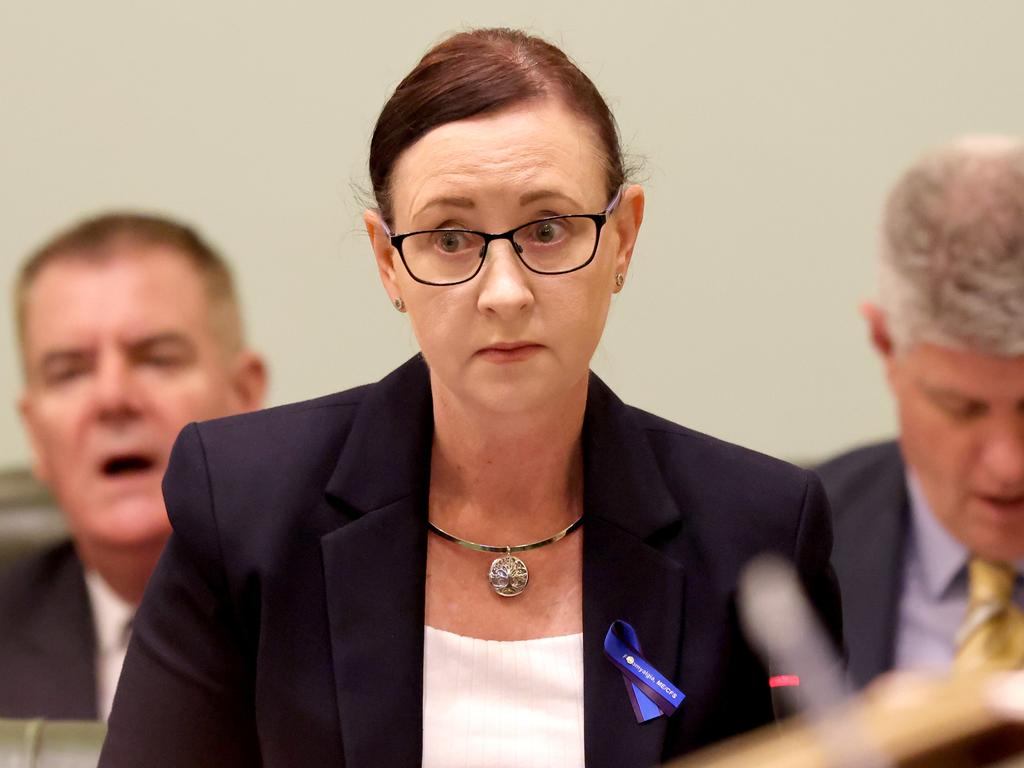




To join the conversation, please log in. Don't have an account? Register
Join the conversation, you are commenting as Logout